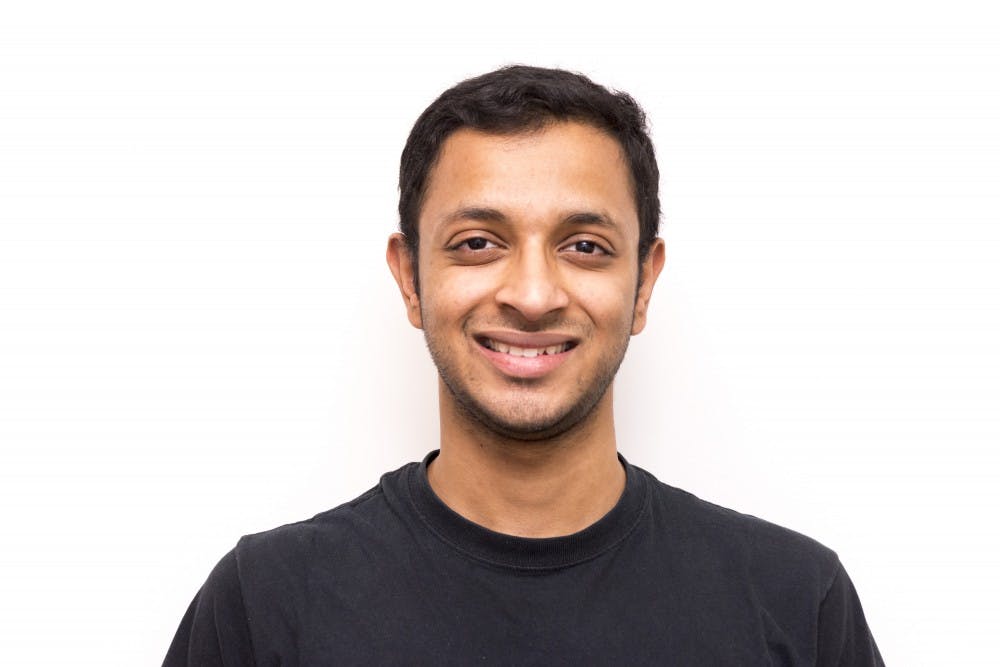Standing at the front of any given classroom on Penn’s campus, you will see students diligently typing, presumably taking notes on whatever important topic the professor is discussing.
Standing at the back of any given classroom on Penn’s campus, you will see students scrolling through Facebook or Instagram feeds, browsing Amazon listings, texting friends through iMessage or clicking away at the Reddit front page.
There may be others who only use devices for legitimate reasons such as note-taking or following along with PowerPoint slides.
In reality, most students who use devices do a mixture of both, taking notes when the professor is making an important point, but sending a quick text during downtime in between.
This multitasking makes focusing on lecture material far more difficult.
Multitasking is proven to have an adverse effect on learning and memory consolidation. A 2014 study by Faria Sana, Tina Weston and Nicholas J. Cepeda shows that laptop-related multitasking in simulated classrooms lowers comprehension and test performance, not just for the user, but also for their peers around them, who are distracted.
I noticed this in my own studies, where I would constantly play on my phone and laptop (if I brought it), checking texts, social media, online news, etc. rather than focusing on the lecture at hand. Lo and behold, when it came time to study for the next midterm, I often felt like I had never seen this topic before, as if I was learning it for the first time. Because I was. I had never processed that information in lecture because I wasn’t paying attention. I had notes from the lecture, but I didn’t know what any of them meant. All that knowledge went in one ear and out the other.
However, let’s assume a student is using a laptop for solely academic purposes — which is overwhelmingly untrue. They would still perform worse, as written note-taking leads to better memory and test performance than laptop note-taking, according to a 2013 study. There is an abundance of evidence showing that students comprehend material and retain information better when taking notes by hand.
So make students take notes by hand. Professors: Ban devices from class.
I will add that I believe there is one notable exception: students with disabilities who, for whatever reason, need a device present. In these special circumstances, however, they should clear it with the professor and the Office of Student Disabilities Services beforehand.
This semester, I have class in a basement lecture hall, so far underground that I can’t get any cell service or Wi-Fi. This is truly a blessing in disguise, because without these devices to distract me, I have nothing better to do than pay attention in class.
Some may say that it is wrong for professors to try and force students to learn in a particular way. Even though science has proven laptop/tablet/cellphone use makes it harder to learn, it is still the choice of the individual student to decide how they will take notes. Devices may be worse for academic performance, but students should have the individual freedom to choose how they learn, even if they choose an inferior method.
I have two responses to that argument: Firstly, a student using a device affects more than that one student. It has been shown that laptop use causes worse academic performance in students surrounding the laptop user. Someone using this device is not just willingly hurting themselves, but also hurting their peers who did NOT choose to use a device.
Secondly, the professor decides how to administrate their classroom, and their goal is to ensure that students learn and retain the material. They are educators and if you bring in a distraction that makes it harder to educate you, they have every right to remove it.
Professors, please ignore the inevitable student grumblings and ban devices from your classrooms. While they may not thank you for it, their transcripts will.
JOE THARAKAN is a College senior from the Bronx, in the Biological Basis of Behavior program. His email address is jthara@sas.upenn.edu. “Cup o’ Joe” usually appears every other Saturday.
The Daily Pennsylvanian is an independent, student-run newspaper. Please consider making a donation to support the coverage that shapes the University. Your generosity ensures a future of strong journalism at Penn.
Donate





